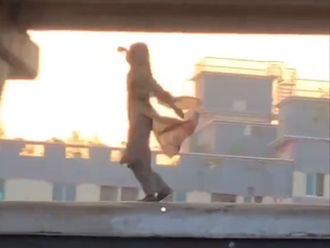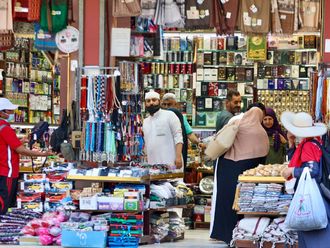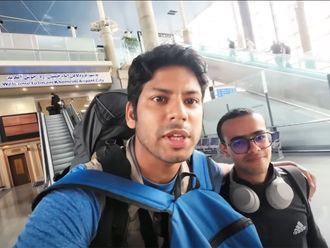
Islamabad: Pakistan’s Supreme Court on Tuesday ordered the Pakistani-British man acquitted of the 2002 gruesome beheading of American journalist Daniel Pearl off death row and moved to a so-called government “safe house”.
Ahmad Saeed Omar Sheikh, who has been on death row for 18 years, will be under guard and will not be allowed to leave the safe house, but he will be able to have his wife and children visit him.
“It is not complete freedom. It is a step toward freedom,” said Sheikh’s father, Ahmad Saeed Sheikh, who attended the hearing.
The Pakistan government has been scrambling to keep Sheikh in jail since a Supreme Court order last Thursday upheld his acquittal in the death of Pearl, triggering outrage by Pearl’s family and the US administration.
In a final effort to overturn the acquittal, Pakistan’s government as well as the Pearl family filed an appeal to the Supreme Court, asking it to review the decision to exonerate Sheikh of Pearl’s murder. The family’s lawyer, Faisal Siddiqi, however, said such a review had a slim chance of success because the same Supreme Court judges who ordered Sheikh’s acquittal sit on the review panel.
The US government has said that it would seek Sheikh’s extradition if his acquittal is upheld. Sheikh has been indicted in the United States on Pearl’s murder as well as in a 1994 kidnapping of an American citizen. The American was eventually freed.
The order sending Sheikh to a safe house would seem to be a concession to the federal government, as well as the government of southern Sindh province where Karachi is the capital. The Sindh government has refused successive orders to release Sheikh, even courting contempt charges from lower courts.
24-hour guard
In the government-run safe house, Sheikh will be under a 24-hour guard - often military personnel - and will not be allowed to leave the house. Locations of such safe houses are usually kept secret.
Pearl disappeared on Jan. 23, 2002, in the port city of Karachi where he was investigating links between Pakistani militant groups and Richard C. Reid, dubbed the “shoe bomber” after his attempt to blow up a flight from Paris to Miami with explosives hidden in his shoes.
Pearl’s body was discovered in a shallow grave soon after a video of his beheading was delivered to the US Consulate in Karachi.
The Pentagon in 2007 released a transcript in which Khalid Sheikh Mohammad, the alleged mastermind of the 9/11 attacks on the United States, said he had killed Pearl.
“I decapitated with my blessed right hand the head of the American Jew Daniel Pearl,” the transcript quoted Mohammed as saying. Mohammad first disclosed his role while he was held in CIA custody and subjected to waterboarding, sleep deprivation and other forms of torture. He remains in the US prison in Guantanamo Bay and has never been charged with the journalist’s death.
Involvement denied
Sheikh had long denied any involvement in Pearl’s death, but Pakistan’s Supreme Court last month heard that he acknowledged writing a letter in 2019 admitting a minor role - raising hopes for some that he might remain behind bars.
In a series of tweets over the weekend, Pearl’s family urged followers to “call your lawmakers in Pakistan, in the US, the world to support Danny’s parents,” to keep Sheikh behind bars.
Last week’s ruling that exonerated Sheikh also exonerated another three men accused in Pearl’s murder who had been serving life sentences. It wasn’t clear whether they would be freed or also moved to a safe house.
Siddiqi, the Pearl family lawyer, said the original murder trial back in 2002 charged all four as one, which complicated the case and allowed the court to free all if there was doubt about the guilt of even one of the suspects.








